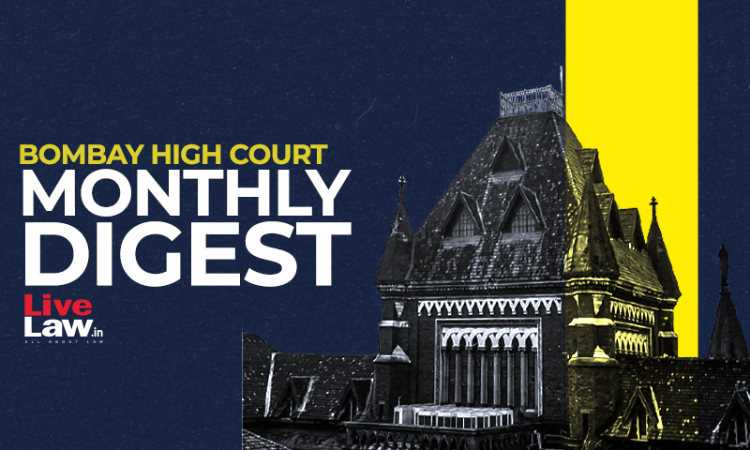Bombay High Court Monthly Digest: May 2023
Amisha Shrivastava
10 Jun 2023 6:20 PM IST
Nominal Index [Citation 223 – 266]Areeb Hasan Ansari Najeeb Hasan Ansari v. State of Maharashtra 2023 LiveLaw (Bom) 223Indian Performing Right Society Ltd. v. Rajasthan Patrika Pvt. Ltd. 2023 LiveLaw (Bom) 224Arjun Amarjeet Rampal v. Union of India and Ors. 2023 LiveLaw (Bom) 225Sayli B Parkhi v. State of Maharashtra 2023 LiveLaw (Bom) 226M/s Bharti Telemedia Ltd. v. State of Goa 2023...
Next Story



